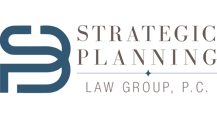We are experienced with traditional estate planning as well as more complex matters that are common to ultra-affluent clients. We like to view estate planning in three phases. Phase 1, or the core estate plan, is essential for all clients. Whether or not a client needs Phase 2 or advanced planning is dependent on the client’s net worth, goals, and objectives in conjunction with the current tax laws. Phase 3, trust and estate administration, is required when the client passes away. Beyond the three distinct planning phases, we assist clients with matters such as gifting strategies, income tax planning, charitable planning, and corporate maintenance.
Phase 1 – Core Estate Plan
The core estate plan is the foundation for all clients. This consists of such documents as a Living Trust, Wills, Powers of Attorney, and Advance Health Care Directives. These documents allow clients to be intentional about who will receive assets at their death and in what manner, designate guardians for minor children, and name agents to serve with respect to financial and health care matters in case of incapacity. Proper planning may also allow a client to avoid the court process known as probate at death.
Phase 2 – Advanced Estate Planning
For ultra-affluent clients with taxable estates, Phase 2 then focuses on advanced estate tax strategies designed to reduce or eliminate the client’s potential estate tax at death. These strategies can also help a client accomplish their wealth transfer and/or charitable goals and might include grantor retained annuity trusts, defective grantor trusts, irrevocable life insurance trusts, family limited partnerships, dynasty trusts, qualified personal residence trusts, irrevocable gift trusts, and family charitable remainder trusts.
Phase 3 – Trust and Estate Administration
The estate planning process does not end at death. When an individual passes away, there are administrative steps that must be taken when allocating assets among beneficiaries and properly winding down the estate. While each situation is unique, these steps can include court filings, allocating and re-titling assets among sub-trusts and beneficiaries, and tax filings.
Other
Outside of the three phases of estate planning, we also assist clients with income tax, life insurance, liability protection and charitable planning, such as the formation of private foundations.
In addition, as a service to our clients, we form corporations and other entities and can provide the regular maintenance required for those entities, such as preparing annual shareholder and director minutes in compliance with California Corporations Law and completing and filing annual statutory information forms required by the Secretary of State.



